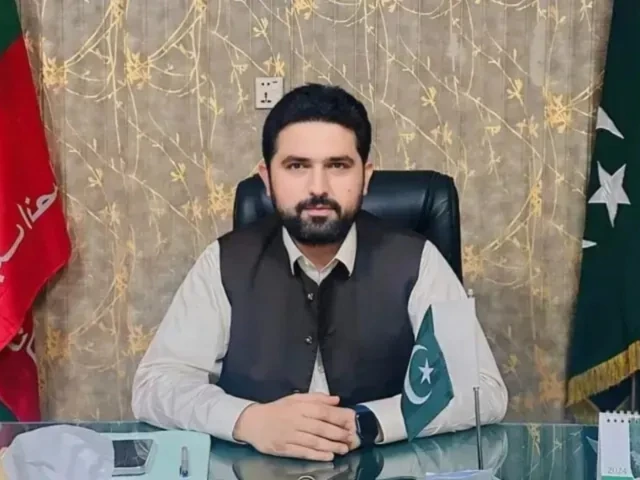RAWALPINDI/PESHAWAR:
Khyber-Pakhtunkhwa Chief Minister Sohail Afridi on Thursday announced the creation of a 13-member provincial cabinet, comprising 10 ministers, two advisors and a special assistant.
According to Express News, the cabinet members include Meena Afridi, Arshad Ayub Khan, Amjad Ali, Aftab Alam Khan, Fazal Shakoor Khan, Khaliqur Rehman, Riaz Khan, Syed Fakhar Jehan and Aqibullah Khan.
Muzzammil Aslam and Taj Muhammad have been appointed as advisors to the chief minister, while Shafi Jan will be the special assistant to the chief minister.
The summary of the new cabinet members was received by the Governor’s House, where Governor Faisal Karim Kundi signed the document.
The swearing-in ceremony is expected to take place on Friday (today) at 3 p.m. at the Governor’s House.
Earlier in the day, Afridi said he was not allowed to meet PTI founding president and incarcerated former prime minister Imran Khan after police stopped him at the Dahgal checkpoint on Adiala Road and stopped him from continuing until the allotted meeting time expired.
“Once again, court decisions have not been respected. The Constitution and the law are being flouted,” he said in a media interview, adding that his party would hold a meeting to decide on the next course of action.
The chief minister criticized the federal government’s handling of security and national politics, asking why terrorists were allowed to “regroup in Pakistan”.
“Everyone in KP is wondering why the terrorists were resettled here,” he said, and urged including the province in national security policy discussions. “If we are included in national politics, we will respect the security forces and the federal government,” Afridi said.
The KP chief minister said he had received instructions from the party founder on cabinet formation and first 10 members would be appointed to the provincial cabinet.
He lamented that they were not allowed to meet the party’s founder. “We have written to Punjab and the federal government. The court granted permission on our petition, but we were denied access through constitutional and legal means,” he said.
On governance issues, Afridi criticized federal institutions and policies. He accused the Auditor General’s office of being involved in a mega corruption scandal, called for the urgent recruitment of teachers and professors to address shortages and questioned why the federal government had not called a meeting of the National Finance Commission despite pressing problems in the province. “KP is being deprived of its rights and its share in development,” he said.
Afridi said the KP had been deprived of its due rights.
“If soldiers die, they are also sons of the nation, we mourn them. If civilians die because of bad policies, we mourn them too,” he said, warning against “decisions taken behind closed doors.”
The KP chief minister explained that by “closed-door decisions” he meant that matters should not be decided by two or three people. “How can a policy be made without the chief minister of a province?,” he asked.
Afridi criticized what he called inconsistent approaches to counterterrorism operations, describing KP as “not a laboratory” for experimental policies and warning that the province’s residents were not “sheep or insects” to be treated as test subjects.




